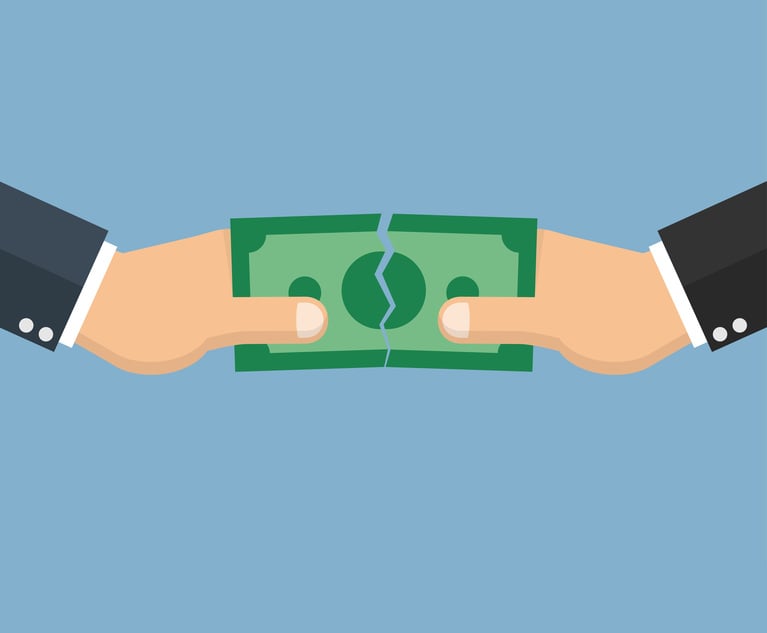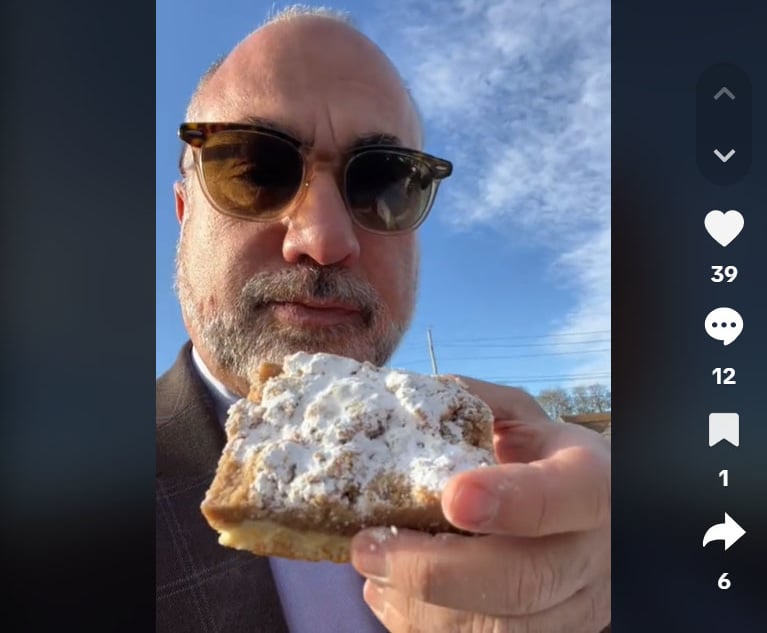NJ's Unconstitutional Experiment With Virtual Grand Juries Should End Immediately
OPED: New Jersey's foray into virtual Grand Juries, now in full swing, overlooks the rights of the accused to a fair and just process.
July 02, 2020 at 12:00 PM
10 minute read

In State v. Miller, 216 N.J. 40 (2013), Associate Justice of the New Jersey Supreme Court Barry Albin lamented the plight of "an impoverished defendant, [that] was treated as just another fungible item to be shuffled along on a criminal-justice conveyor belt." Justice Albin continued, "Miller is more than another dispositional entry on a docket sheet, more than another statistic in some inexorable, impersonal process that knows no delays for justice." Justice Albin's cautionary words ring true once again today as our Grand Jury system has been relegated to nothing more than a virtual intake portal for criminal cases, devoid of the constitutional protections that are supposed to be afforded to defendants, in the name of expedience. By judicial order, and without the legislative action that has directed all other aspects of the Grand Jury system, individual rights have sustained a major setback at a time when casting light upon the historical inequities in our criminal justice system is supposed to be directing progress. New Jersey is heading backwards, fast.
Article I, Section 8 of the 1947 New Jersey State Constitution guarantees that "[n]o person shall be held to answer for a criminal offense, unless on the presentment or indictment of a grand jury[.]" Building upon that fundamental right, the Legislature has prescribed a statutory framework for virtually every conceivable facet of our Grand Jury system. Absent from that statutory framework is a means by which the State can "phone in" its constitutional duty from behind a keyboard and a computer screen. In State v. Hogan, 144 N.J. 216 (1996), the New Jersey Supreme Court held that prosecutors have a duty to present clearly exculpatory evidence to a Grand Jury when such evidence directly negates guilt. The failure to do so by the State can lead to the dismissal of an indictment. Yet, as Grand Juries go virtual, defendants' rights are being taken away, not added.
New Jersey's foray into virtual Grand Juries, now in full swing, overlooks the rights of the accused to a fair and just process. There are a number of characteristics of virtual Grand Juries that render them something less than what New Jersey's constitutional framers contemplated, the Legislature has implemented, and the New Jersey Supreme Court has concluded is supposed to represent something more than a mere rubber stamp for prosecutorial action.
|The Limiting Effect on the Grand Jury Pool
The qualifications for who can serve as a Grand Juror and how the Grand Jury is to function generally are products of statute. The New Jersey Supreme Court Order authorizing mandatory virtual Grand Juries creates a new "extra-statutory" qualifying factor to become a Grand Juror that appears nowhere in the Legislature's comprehensive framework for conducting Grand Jury proceedings—reliable internet access. Not only does that constitute improper legislation from the bench, it eliminates an entire group of people that could otherwise serve on an ordinary Grand Jury. This renders Grand Juries less inclusive, less diverse, and less fair.
Without any of the deliberative process that takes place when the Legislature amends a statute, the Grand Jury pool has now been limited based upon economic status, overnight. Wealthy suburban residents with their reliable broadband connections and multiple connected devices will be well equipped to participate as virtual Grand Jurors, whereas an entire demographic group without such luxuries is not. This is a far cry from equal justice for all. Defendants deserve better. In an age where the value of the diversity of viewpoints has taken such a prominent role in our public discourse, it is appalling that one of the central components of our democracy would be administered in such a tone-deaf fashion. Virtual Grand Jurors might be the peers of some people, but they are by no means the peers of all people. Perhaps if the Legislature was given the opportunity to perform its valuable deliberative function before the statutes governing Grand Jury practice were unilaterally modified by judicial action, the disparities created by virtual Grand Juries would have been considered.
|The Loss of Secrecy
A bedrock principle of any Grand Jury is secrecy. The public, or anyone outside of the Grand Jury, does not know what witnesses are being subpoenaed or what documents are being presented for good reason. Secrecy protects witnesses testifying and protects the accused. It is integral to the Grand Jury system, regardless of what side of the process you are on.
A person's reputation could be ruined in an instant by the mere suggestion of being a target of a Grand Jury investigation. For its part, law enforcement also benefits from Grand Jury secrecy because secrecy allows ongoing investigations to proceed without disruption. Moreover, if a Grand Jury witness is outed, it could put the witness in grave danger. This includes undercover police officers and confidential informants.
Proponents of virtual Grand Juries allege that they will be secure and confidential. The argument, as has been explained, is that, because only Grand Jurors will be able to log into the virtual proceedings with their electronic devices, no one else will be privy to the information presented there. Additionally, the standard Grand Jury charge was supplemented to strengthen the secrecy oath, addressing the special requirements of participation in a virtual proceeding. However, those intended protections are simply not enough for a process so critical to the fundamental fairness of the criminal justice system.
If you were the key witness testifying against an alleged dangerous gang leader or drug lord, would you feel safe knowing that your testimony would be broadcast into at least 23 different places around your neighborhood? Virtual Grand Jurors can easily record Grand Jury proceedings with their mobile phones, or use their mobile phones to call other people who will then be able to surreptitiously listen to the proceedings. An "oath of secrecy" is a lot easier to break sitting in the comfort of one's home than a courtroom.
Allowing Grand Jurors to operate from their homes, if we can even guarantee that they are in their homes when participating, does not eliminate the risk that others in the household will overhear the proceeding. Nothing changes this reality in the context of Grand Juries.
|Can You Hear Me Now?
If this period of time has proven one thing, it is that technical issues abound when it comes to virtual meetings in ways that directly undermine the integrity of the communication. Video freezes and buffers, and doesn't capture all of the cues so vital to judging credibility. Audio is imperfect over WiFi. Signal strength is not uniform in every household. Are we really going to entrust a process so sacred, so fundamental to the fair administration of justice, to systems where uttering the phrase "can you hear me now" is part of the established lexicon?
|Who Really Benefits from Virtual Grand Juries Anyway?
Proponents of the virtual Grand Jury system assert that it is being implemented for the benefit of defendants. Considering how this pilot program got started, that theory seems implausible, and all indications are that this is about one thing and one thing only—the Administrative Office of the Courts trying to move cases. To that, the defense bar's response is simple—at what cost? Bureaucracy should not stand in the way of justice.
When the virtual Grand Jury pilot program was first introduced, it was supposed to proceed only if the defendant consented. Everyone was assured that it was to help defendants, to protect them; it was for their own good. Yet defendants and their attorneys thought otherwise. They concluded that it was actually not in their interest to consent to an event that, under the law, is the formal commencement of the adversarial criminal process. Thus, when no defendants consented, the program (and its proffered rationale) changed, virtually overnight, and the New Jersey Supreme Court ordered that virtual Grand Juries would proceed with or without the defendant's consent.
The defendants sitting in jail across New Jersey, waiting to be indicted, are some of the most vulnerable and helpless people in our society. They are locked away, separated from their family and friends, about to enter a complex, multifaceted judicial system, and presumed innocent. Yet, they are the ones being asked to give up their rights. Meanwhile, prosecutors are operating with business as usual. Why aren't the prosecutors being asked to change their procedures? Why aren't these state employees, who are compensated by taxpayers, being asked to work creatively to come to an alternative solution? Prosecutors could certainly propose more reasonable plea offers sooner, or abide by the requirement to turn over discovery earlier in the process, rather than waiting until right before trial. Federal prosecutors have found a way to continue in person Grand Juries with venues that allow for social distancing measures to be implemented, why can't their state counterparts figure it out too? The State can also make better use of pre-trial home confinement. Instead of even try to think outside the box, the virtual Grand Jury system places all the burden on defendants, which runs counter to the presumption of innocence.
|'Injustice Anywhere Is a Threat to Justice Everywhere' (Martin Luther King Jr.)
It would appear that the virtual Grand Jury pilot program, now proceeding without the consent of the accused, is being used to expedite cases at the expense of the least powerful party involved. The rules of our judicial system were created to protect the accused. This court-ordered program, however, seems to be focused on statistics rather than individual rights. Energy would be better spent on finding the least intrusive means to ensure that defendants' constitutional rights are protected in a manner that does not endanger witnesses or the reputation of innocent people. The virtual Grand Jury pilot program is a disaster for New Jersey, but because only defendants' rights are being inconvenienced, nobody is talking about it.
This is wrong. It is the start of a dangerous process and it will, eventually, affect procedures far beyond the Grand Jury. All lawyers and their clients should be concerned, even those who have no fear of an indictment or even the criminal justice system. True justice cannot be sacrificed at the altar of judicial expediency.
Matthew Adams and Jennifer Mara are current officers of the Association of Criminal Defense Lawyers of New Jersey (ACDL-NJ); Marissa Koblitz Kingman and Jason LeBoeuf are current ACDL-NJ Trustees, and Michael Baldassare is a past-president of the ACDL-NJ. Adams and Kingman are attorneys with Fox Rothschild in Morristown. Baldassare and Mara are with Baldassare & Mara in Newark. LeBoeuf is at Zeigler, Zemsky & Resnick in Livingston.
This content has been archived. It is available through our partners, LexisNexis® and Bloomberg Law.
To view this content, please continue to their sites.
Not a Lexis Subscriber?
Subscribe Now
Not a Bloomberg Law Subscriber?
Subscribe Now
NOT FOR REPRINT
© 2025 ALM Global, LLC, All Rights Reserved. Request academic re-use from www.copyright.com. All other uses, submit a request to [email protected]. For more information visit Asset & Logo Licensing.
You Might Like
View All
Tensions Run High at Final Hearing Before Manhattan Congestion Pricing Takes Effect
3 minute read

Appreciating the Important Work the Middlesex County Civil Bar Panel Does
7 minute read
Law Firms Mentioned
Trending Stories
- 1Restoring Trust in the Courts Starts in New York
- 2'Pull Back the Curtain': Ex-NFL Players Seek Discovery in Lawsuit Over League's Disability Plan
- 3Tensions Run High at Final Hearing Before Manhattan Congestion Pricing Takes Effect
- 4Improper Removal to Fed. Court Leads to $100K Bill for Blue Cross Blue Shield
- 5Michael Halpern, Beloved Key West Attorney, Dies at 72
Who Got The Work
Michael G. Bongiorno, Andrew Scott Dulberg and Elizabeth E. Driscoll from Wilmer Cutler Pickering Hale and Dorr have stepped in to represent Symbotic Inc., an A.I.-enabled technology platform that focuses on increasing supply chain efficiency, and other defendants in a pending shareholder derivative lawsuit. The case, filed Oct. 2 in Massachusetts District Court by the Brown Law Firm on behalf of Stephen Austen, accuses certain officers and directors of misleading investors in regard to Symbotic's potential for margin growth by failing to disclose that the company was not equipped to timely deploy its systems or manage expenses through project delays. The case, assigned to U.S. District Judge Nathaniel M. Gorton, is 1:24-cv-12522, Austen v. Cohen et al.
Who Got The Work
Edmund Polubinski and Marie Killmond of Davis Polk & Wardwell have entered appearances for data platform software development company MongoDB and other defendants in a pending shareholder derivative lawsuit. The action, filed Oct. 7 in New York Southern District Court by the Brown Law Firm, accuses the company's directors and/or officers of falsely expressing confidence in the company’s restructuring of its sales incentive plan and downplaying the severity of decreases in its upfront commitments. The case is 1:24-cv-07594, Roy v. Ittycheria et al.
Who Got The Work
Amy O. Bruchs and Kurt F. Ellison of Michael Best & Friedrich have entered appearances for Epic Systems Corp. in a pending employment discrimination lawsuit. The suit was filed Sept. 7 in Wisconsin Western District Court by Levine Eisberner LLC and Siri & Glimstad on behalf of a project manager who claims that he was wrongfully terminated after applying for a religious exemption to the defendant's COVID-19 vaccine mandate. The case, assigned to U.S. Magistrate Judge Anita Marie Boor, is 3:24-cv-00630, Secker, Nathan v. Epic Systems Corporation.
Who Got The Work
David X. Sullivan, Thomas J. Finn and Gregory A. Hall from McCarter & English have entered appearances for Sunrun Installation Services in a pending civil rights lawsuit. The complaint was filed Sept. 4 in Connecticut District Court by attorney Robert M. Berke on behalf of former employee George Edward Steins, who was arrested and charged with employing an unregistered home improvement salesperson. The complaint alleges that had Sunrun informed the Connecticut Department of Consumer Protection that the plaintiff's employment had ended in 2017 and that he no longer held Sunrun's home improvement contractor license, he would not have been hit with charges, which were dismissed in May 2024. The case, assigned to U.S. District Judge Jeffrey A. Meyer, is 3:24-cv-01423, Steins v. Sunrun, Inc. et al.
Who Got The Work
Greenberg Traurig shareholder Joshua L. Raskin has entered an appearance for boohoo.com UK Ltd. in a pending patent infringement lawsuit. The suit, filed Sept. 3 in Texas Eastern District Court by Rozier Hardt McDonough on behalf of Alto Dynamics, asserts five patents related to an online shopping platform. The case, assigned to U.S. District Judge Rodney Gilstrap, is 2:24-cv-00719, Alto Dynamics, LLC v. boohoo.com UK Limited.
Featured Firms
Law Offices of Gary Martin Hays & Associates, P.C.
(470) 294-1674
Law Offices of Mark E. Salomone
(857) 444-6468
Smith & Hassler
(713) 739-1250






